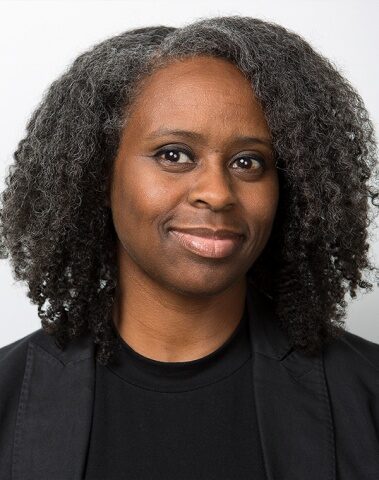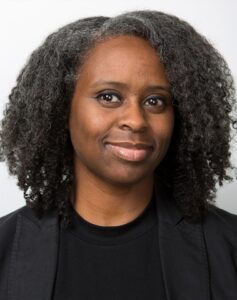
Cezanne Charles, earned a Master’s in Public Policy from the U-M Ford School of Public Policy.

Cezanne Charles, earned a Master’s in Public Policy from the U-M Ford School of Public Policy.
Using racial justice and equity as her north star, Cézanne Charles (MPA ’15) helps shape Detroit’s cultural sector and champions the integrative role it plays in civic action and social movements. Charles leads multiple projects that explore new ways Detroit’s cultural sector contributes to a more just and equitable community.
With associate professor John Marshall, Charles is the co-founder and director of rootoftwo, a research-and practice-driven hybrid design studio. rootoftwo is currently leading the technology framework and planning for the Cultural Center Planning Initiative, a 10-year master plan to “reimagine Detroit’s art and cultural district.”
The initiative is led by a project management group including Midtown Detroit Inc., Detroit Institute of Arts, the city of Detroit, and philanthropy. They are exploring efforts to transform the digital experience for residents and visitors by expanding public Wi-Fi among other opportunities.
“Cultural Center institutions like the Detroit Public Library, the DIA and the Detroit Historical Society can really make a difference for digital inclusion,” she said. As a taskforce member of Connect 313, a city of Detroit initiative, rootoftwo has aligned its work on the initiative to contribute to digital inclusion in the city.
Also important, she said, is building the capacity of designers and policymakers to develop inclusive approaches to co-create equitable outcomes with residents and others. She works with Design Core Detroit and the College for Creative Studies on the Inclusive Design Training Program.
Detroit’s creative sector also benefits through her work on national efforts, like the Getting Creative Workers Working, a national coalition-based effort of policymakers, artists, philanthropists, and advocates working to improve conditions for creative workers and getting them back to work anchored in justice and equity. Charles highlights the Cultural New Deal as a touchstone.
Charles’ collaborative work is based in research and inquiry, and she credits the Ford School with giving her a foundation in analytic methods. “I knew I needed a stronger background in economics, quantitative and qualitative methods. And I knew the Ford School’s MPA program was rigorous enough to give me that grounding.”
Using the lessons learned at the Ford School, Charles led an evidence-based mixed methods economic impact study of the creative sector in Detroit and Michigan funded by the US Economic Development Administration, The Kresge Foundation and other philanthropic partners.
Charles also took several classes in the Ford School’s Science and Technology in Public Policy track and emphasized her coursework in this area. As a result, she said, “I developed important critical and comparative policy skills” to advocate for a more inclusive and just digital transformation in Detroit.

